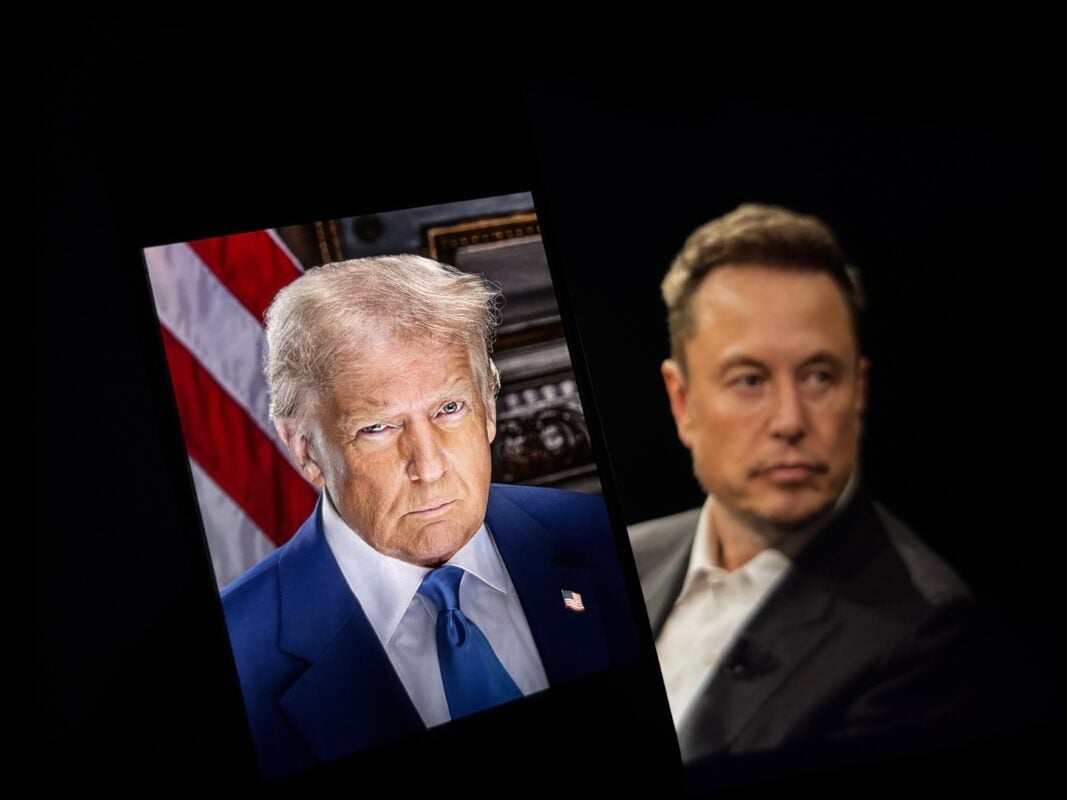TLDRs:
Contents
- Trump accused Elon Musk of receiving more government subsidies than anyone in history, claiming Tesla and SpaceX rely heavily on taxpayer support.
- The remarks followed Musk’s criticism of proposed Senate cuts to EV and clean energy tax credits, which he said would harm U.S. climate progress.
- Although federal EV subsidies have inefficiencies, studies show they still yield net economic and environmental benefits for the country.
- Trump’s attack underscores growing tensions over clean energy policy and could shape political narratives heading into the 2025 election.
U.S. President Donald Trump reignited his long-standing tension with Tesla and SpaceX CEO Elon Musk, launching a sharp attack on social media over Musk’s reliance on federal subsidies.
In a post on his platform, Truth Social, Trump claimed that Musk had benefited more from government handouts than any other individual in history. He suggested that Musk’s businesses, including Tesla and SpaceX, may not survive without such extensive taxpayer support.
Trump’s latest comments come in the wake of a broader policy dispute surrounding clean energy tax credits. He argued that eliminating subsidies for electric vehicles (EVs) could result in significant savings for the federal government. According to the former president, cutting off what he sees as excessive funding to Musk’s ventures would be both fiscally prudent and economically necessary.
Political feud resurfaces over energy tax credits
Trump’s criticism closely follows Elon Musk’s own remarks opposing changes to federal EV incentives. Musk recently condemned Senate proposals, linked to revisions of Trump’s previous tax bill, that would scale back credits for clean energy and electric vehicle adoption. He warned that such cuts could stall progress in U.S. climate goals and jeopardize the momentum of domestic EV innovation.
Musk’s response underscored the importance of consistent government support to advance electric mobility and reduce carbon emissions. But Trump’s counterattack painted a starkly different picture, suggesting Musk’s success was built not on merit, but on government favoritism.
A decades-old policy under scrutiny again
The dispute has revived public interest in how U.S. EV subsidies work and whom they benefit. Government support for electric vehicles is not new, with roots tracing back to the George W. Bush administration’s 2005 Energy Policy Act. It expanded significantly under Barack Obama’s 2009 Recovery Act, which poured billions into EV infrastructure and manufacturing.
Critics of current policy point to recent data suggesting inefficiencies. A Stanford analysis found that most EV tax credits go to consumers who would have made the purchase anyway, with an average cost of $32,000 to incentivize a single extra EV sale. Despite this, the same study concluded that the overall benefit of these subsidies, including environmental gains and job creation, still outweighs the cost, delivering nearly double the return on investment.
Economic tensions meet global competition
Trump’s remarks also come amid increasing global competition, particularly with China, which has outpaced the U.S. in electric vehicle investment and production. Between 2009 and 2023, China invested over $230 billion in its EV sector, dwarfing U.S. efforts and establishing dominance in battery manufacturing and supply chains.
This competitive edge has triggered new debates in Washington over whether cutting subsidies now could hand strategic advantage to geopolitical rivals.
Subsidy politics may shape 2025 election rhetoric
That said, as both Trump and Musk continue to wield significant influence in political and business spheres, their clash highlights broader ideological divisions over climate policy, government spending, and the role of industry leaders.
Trump’s attacks may also signal his intent to frame clean energy incentives as a core issue in the lead-up to the 2025 election cycle, casting them as wasteful spending rather than necessary investment.
For Musk, who has increasingly weighed in on national policy debates, the criticism may further complicate his public image. While he champions innovation and free markets, his businesses remain deeply intertwined with public funding, a reality that continues to provoke both admiration and scrutiny.


